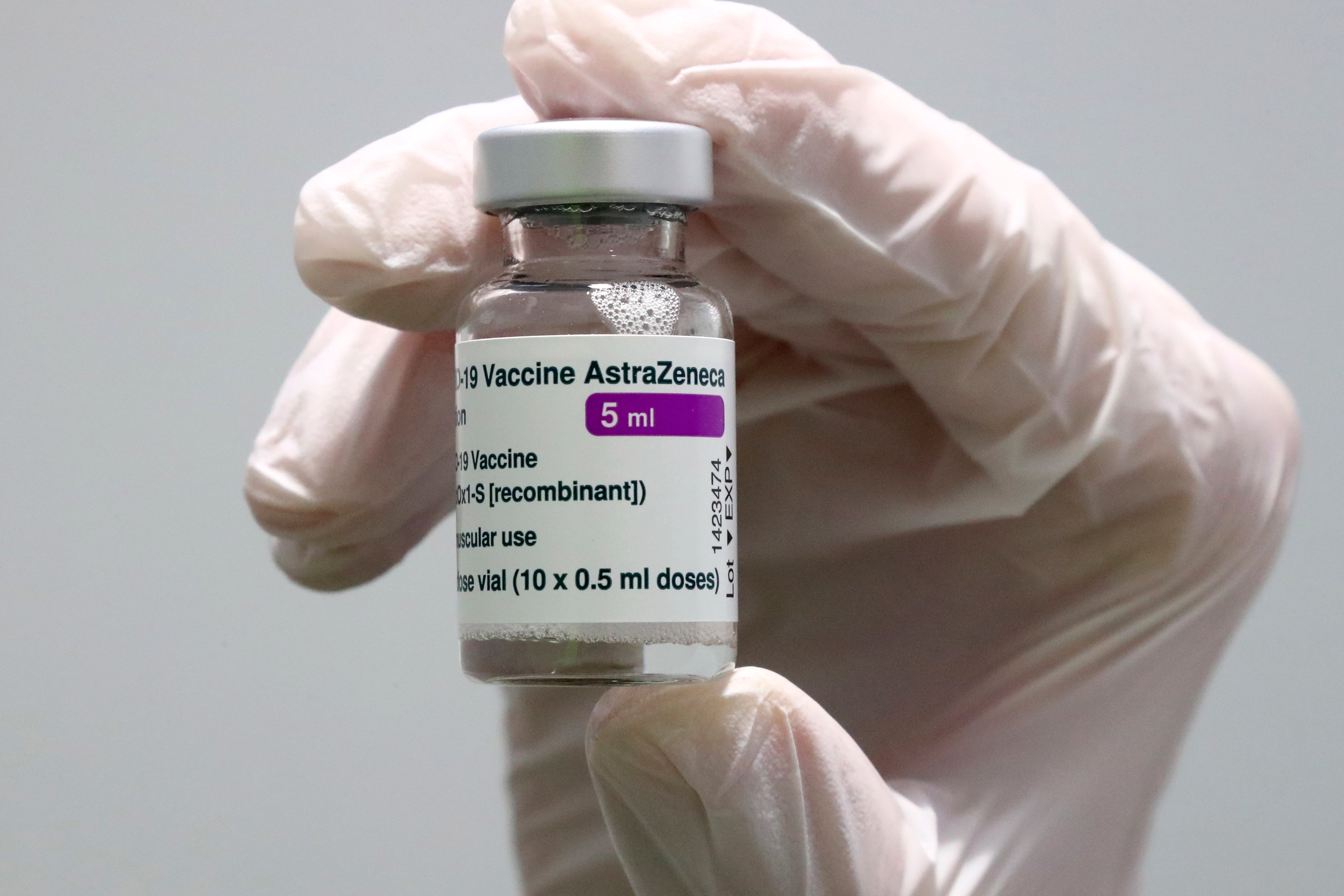The truth about AstraZeneca’s Covid vaccine
Vaxzeveria has had its licence withdrawn, writes James Moore. But if you offered me a booster, I’d take it in a shot


Within 24 hours of my first Covid vaccine, I was in bed, feeling like I had just gone 10 rounds with Mike Tyson. I was unable to work for several days.
Nonetheless, when it came to the second shot of the Oxford-AstraZeneca Covid vaccine, I was at the front of the queue in the full knowledge of what might happen (luckily, although I did feel unwell for a couple of days, it wasn’t as bad as the first time around).
The symptoms I experienced, which my GP told me were rare, were unpleasant – but they were nothing compared to the time I actually had Covid. On that occasion, even when lay flat on my back, I felt as though I had a lead weight on my chest while breathing.
That’s why, if there was an Astra booster being offered today, I would take it without hesitation.
But there isn’t. The company has announced that it is withdrawing the Vaxzevria licence. Demand for the shot waned in the face of competition from a host of newer vaccines, and the company stopped making money from it last year, at which point manufacturing ceased.
The end of the licence formally brings the curtain down on the treatment, which will now become a part of the medical history books. The barrage of negative publicity Vaxzevria has encountered – there are lawsuits too – will ultimately merit a sober academic analysis. I believe that such an exercise will show the importance of the role it has played, and how ill-informed some of the criticism the treatment has faced will look. The evidence is plentiful.
Let’s start with the World Health Organisation, which says that to date the global death toll from Covid-19 stands at 7m. That would have been many times more were it not for the global vaccination campaign. London’s Imperial College in 2022 estimated that this saved the lives of 20m people between December 2020 and December 2021 alone.
Airfinity, a disease forecasting tech company, used that study’s data to estimate how many people had been saved by each of the vaccines available during the period in question. Vaxzeveria came top with 6.34m, followed by Pfizer/BioNTech with 5.98m. Sinovac, developed in China, was a distant third with 2.01m. This is before one considers the much larger number of hospitalisations that were prevented at a time when the health systems of some of the worst affected countries – Britain included – were teetering on the brink of collapse.
We have allowed ourselves to forget just how bad it was then, which has facilitated the efforts of those seeking to rewrite the history of the pandemic for political purposes.
A paper published by America’s Centers for Disease Control and Prevention put the death toll from the Spanish flu pandemic, which struck between 1918 and 1920, at 50m when the global population was much smaller. Some estimates have the total at twice that. Just imagine the damage Covid would have done in the absence of the vaccines.
Astra supplied over 3bn doses at cost – so not for profit – to more than 180 countries in less than 18 months. Two thirds went to low and lower middle-income countries.
Yes, there is a lawsuit making its way through the UK courts. The plaintiffs argue that the vaccine caused death and/or disability in dozens of cases – a very small proportion of those treated. I would not seek to deny anyone’s right to seek legal redress if they and their advisors feel they have a case. Nor would I wish to downplay their grief and suffering.
But it bears repeating that the side effects from the Astra vaccine were rare. Moreover, there have been studies suggesting a higher incidence of blood clots – the condition at issue in the lawsuit – among those infected by Covid than in those who were vaccinated.
Even if the case is ultimately proved, the cost is still vastly outweighed by the net benefits of Vaxzeveria, and by the enormous number of families who still have their loved ones with them because of it.
Vaccination is one of the greatest achievements of modern medical science – the Covid vaccines in particular – and the anti-vaccination “movement” is one of the most bizarre and disturbing developments of the internet age. Some of the conspiracy theories that have done the rounds in relation to Covid treatments are beyond bizarre. Yet you will still find people willing to stump for them on social media, and any other credulous channel they can find.
It is time for a dose of reality. “We are incredibly proud of the role Vaxzevria played in ending the global pandemic,” AstraZeneca said in a statement. “Our efforts have been recognised by governments around the world and are widely regarded as being a critical component of ending the global pandemic.”
Rightly so.
Join our commenting forum
Join thought-provoking conversations, follow other Independent readers and see their replies
Comments
Bookmark popover
Removed from bookmarks